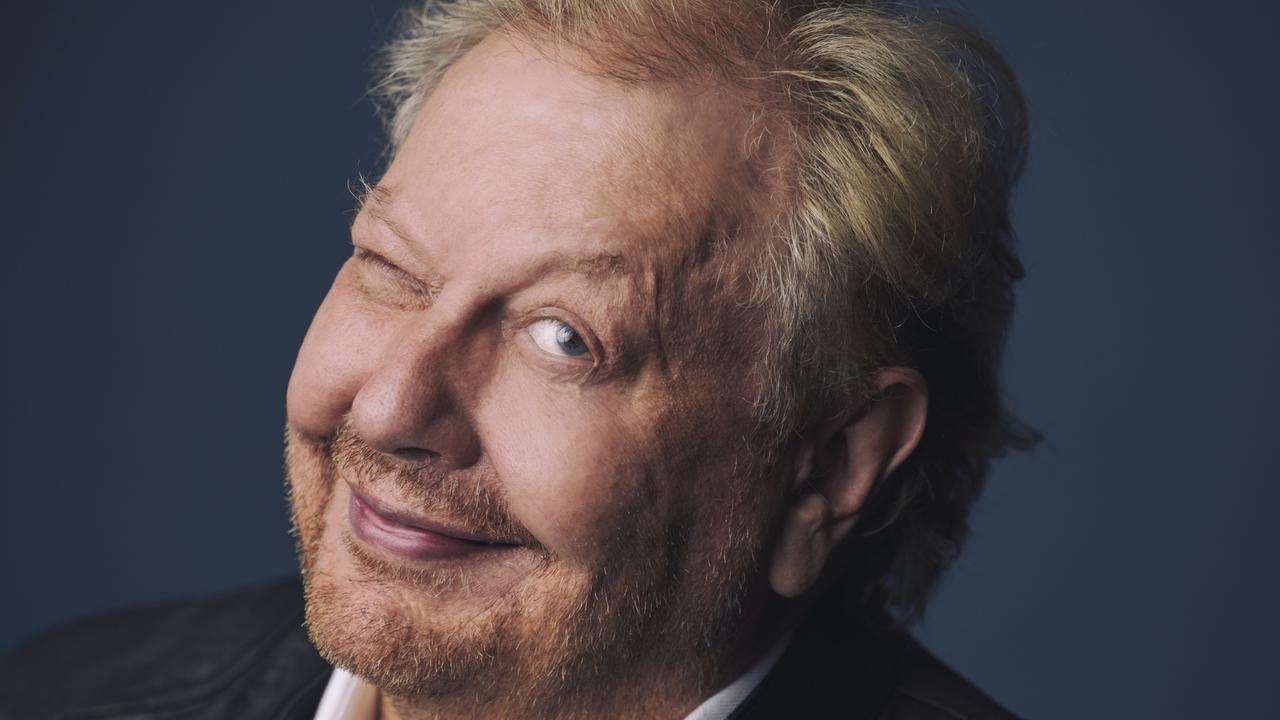TikTok denies Australia ban
Social media site TikTok denies it faces a likely ban in Australia.
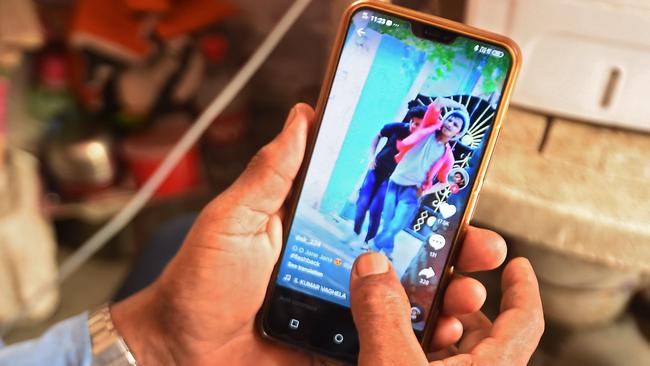
Welcome to The Download, The Australian’s technology blog for the latest breaking tech news.
Chris Griffith 8.00pm: TikTok denies Australia ban
Social media platform TikTok says that a report that it is being banned in Australia is wrong.
The China-owned social media site is facing increased pressure in the west over concerns that data stored by the platform could be requisitioned by Chinese law enforcement authorities.
It has already been banned in India following that country’s military border skirmishes with China, and in Australia there are reports calling for its ban.
A report in Melbourne’s The Herald Sun on Monday quoted an unnamed federal MP who said the app’s fun appearance meant it had gone largely unscrutinised in Australia and had not been taken as seriously as other Chinese efforts to mine information.
“It might be dressed differently but it’s the same beast,” the MP said.
However the Foreign Interference through Social Media senate inquiry looks likely to examine the app’s future in Australia.
Committee chair Labor Senator Jenny McAllister has told The ABC it was unclear where TikTok stored its data and unclear what the platform’s content moderation policies are. She pointed to a decision by TikTok to delete material about the 1989 Tiananmen Square massacre in Beijing.
TikTok, in a statement to The Australian, says: “TikTok Australia user data is stored in Singapore, and their Chief Information Security Officer has outlined their efforts to minimise data access across regions,” the statement says.
“Their Transparency Report, which they first released last year, provides important insight and clarity to their users regarding the volume and nature of governmental requests for their users‘ account information and other legal notifications.
“Technology companies regularly receive requests from various official bodies asking TikTok to take certain actions at their behest. These include requests to take down content deemed to be in violation of local laws and/or provide data related to accounts under certain defined circumstances.
“ As is standard across the industry, TikTok is committed to assisting law enforcement in appropriate circumstances while respecting the privacy and rights of our users.
“As you‘ll note from the report, the TikTok app does not operate in China and has not received any requests from the Chinese government for user information or to remove content.”
TikTok Australia‘s general manager Lee Hunter earlier told news.com.au the company welcomes the chance to speak with policy makers at an inquiry.
TikTok meanwhile has announced it is quitting the Hong Kong market because of the passing of China’s national security law. It says Hong Kong is only a small market for the platform and is not profitable. It is also likely TikTok would be unable to refuse local law enforcement orders to supply data accumulated by its platform if it stayed there.
ByteDance distributes a different app to TikTok in China called Douyin.
David Swan 4.20pm: ’Military grade’ video security needed
Video conferencing app Zoom has faced criticism for its security practices, leading the company to release a 90-day report on its security measures.
The issues have also opened up room for a strong, military-grade alternative, according to the CEO of local Zoom rival Dekko Secure.
“There is widespread knowledge of the security gaps in current video conferencing, given the global rise in working from home during COVID-19,” Dekko Secure chief executive Jacqui Nelson said.

“Being assured that your sensitive and confidential video chats are protected from unwanted eyes and ears is essential for governments, law enforcers, medical professionals, lawyers, accountants, journalists, board of directors, teachers, business professionals and many others regardless of whether they’re working remotely or need to collaborate across geographies,” she said.
According to Ms Nelson, demand for global video conferencing is exploding, with more than 600 million video conferences happening every day.
The video conferencing software market size is expected to be worth more than $50 billion by 2026,” she said.
Dekko Secure is currently being used by some of Australia’s courts and prisons, among other organisations.
“Working flexibly and from home is here to stay as governments, organisations and businesses around the world attempt to keep their workforce safe till a COVID-19 vaccine can be found. The world, however, is unlikely to return to how it was as more people enjoy the freedom from travel, increased productivity and reduced travel expenses and governments seek to minimise environmental impacts and reduce carbon emissions. Now, more than ever, we need an easy to use and secure video conferencing solution,” Ms Nelson said.
Dekko Secure’s small business package costs $27.99 per month, and its corporate package costs $37.99 per month.
David Swan 2.40pm: LaunchVic revamps board
Victoria’s state government start-up body LaunchVic has a new board, with innovation minister Jaala Pulford announcing a revamp this morning.
“We welcome Leigh Jasper as LaunchVic Chair along with Ilona Charles, Aneetha de Silva and Teresa Engelhard as incoming Directors,” Ms Pulford said in a statement.
“LaunchVic would like to acknowledge extraordinary efforts and dedication of outgoing Directors Ms Laura Anderson, Mr Tim Fawcett and Ms Anne Bennett.
“During their tenure Laura, Tim and Anne have all made enormous contributions to both LaunchVic and Victorian Startup Ecosystem more broadly, which has more than doubled in valuation from US$1.6 billion in 2018 to US$4.8 billion in 2020.
“Chaired by Laura, the LaunchVic Board led the development of the strategy that oversaw this phenomenal growth. In addition, Tim chaired the Audit, Finance and Risk Committee helping LaunchVic to develop robust governance systems and processes. Anne contributed as a key member of Grants & Funding Committee that has overseen funding to over 115 programs.
“The LaunchVic team would like to thank Laura, Tim and Anne for their leadership, support and advice as well as the enduring legacy they leave as we continue to grow the Victorian Startup Ecosystem.”
Ms Pulford recently replaced Martin Pakula to become Victoria’s innovation minister after the state government’s most recent reshuffle.
Chris Griffith 1:10pm: TikTok quits Hong Kong
Social media app TikTok has announced it is withdrawing from operating the app in Hong Kong.
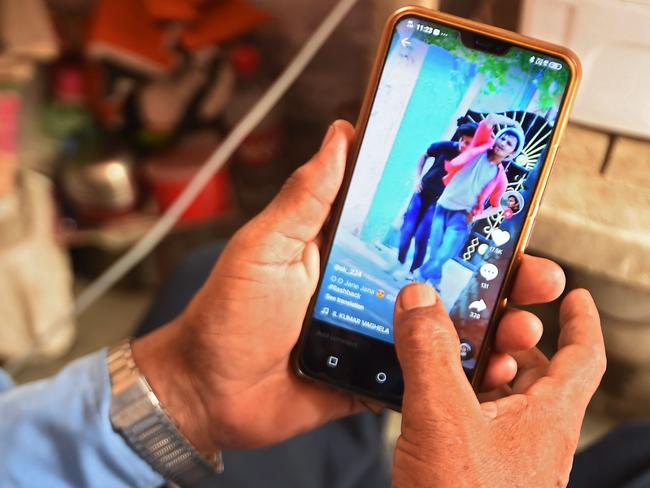
“In light of recent events, we‘ve decided to stop operations of the TikTok app in Hong Kong,” a TikTok spokerperson said.
But it would be wrong to assume that the withdrawal somehow signals support for the protest movement as TikTok is run by a Chinese company, ByteDance. TikTok itself doesn’t operate within China; ByteDance has an alternative app for mainland China called Douyin.
A source told The Australian that TikTok decided to exit Hong Kong after the passing of the new national security law which increases the ability of China to crack down on dissent and punish protesters. It is understood the market for TikTok in Hong Kong had been small and the company did not see its operation there as profitable.
There could be other reasons. It is likely that TikTok wouldn’t want to have to deal with posts that could be regarded as subversive and with any arrests associated with its use as it continues to seek to expand in western markets.
TikTok could be responding to the news that Twitter, Facebook and Alphabet-owned Google have paused all data and information requests from Hong Kong authorities immediately. It would be harder for TikTok to refuse these requests if it stayed in the Hong Kong market so it was probably easier to get out of it altogether. We don’t know for sure.
David Swan 11.30am: Rudd hits back at NBN claims
Former Prime Minister Kevin Rudd has responded to a story in the Weekend Australian, marking the completion of the National Broadband Network.
Mr Rudd describes the network as “hurtling towards obsolescence” and that former Prime Minister John Howard “failed to grasp the internet’s central role in the future economy.”
Below is the letter in full.
Ziggy Switkowski’s triumphalism over having “completed” the National Broadband Network is bizarre, and not just because this expensive-to-maintain copper network is already hurtling towards obsolescence. The fact is the NBN only exists at all because my government promised universal access to broadband at the 2007 election. The previous Liberal government infamously had around 18 broadband policies and reviews of policies – a messy patchwork of corporate subsidies that reflected John Howard’s own failure to grasp the internet’s central role in the future economy.
Switkowski claims our rollout targets were unrealistic. But most major projects miss some targets, be it a light-rail line through central Sydney, or a broadband network spanning the whole country. Ziggy should know this, having missed his own NBN target by three-and-a-half years.
Finally, Switkowski’s absurd claim that Labor’s policy was “designed on an aeroplane napkin” shows how deeply he’s imbibed the Liberal Party and Murdoch meme. Whether it was a napkin, as Ziggy says, or a beer coaster, as Malcolm says, the story is a lie. The boring truth is that Labor’s fibre-to-the-premises model was recommended by a formal panel of industry, academic and regulatory experts led by Treasury secretary Ken Henry and Communications secretary Patricia Scott.
Kevin Rudd
Sunshine Coast, Qld
11.30am: Tech companies suspend Hong Kong data requests
Google, Facebook and Twitter are among tech companies that have suspended processing requests for user data from Hong Kong law-enforcement agencies following China’s imposition of a national-security law on the city.
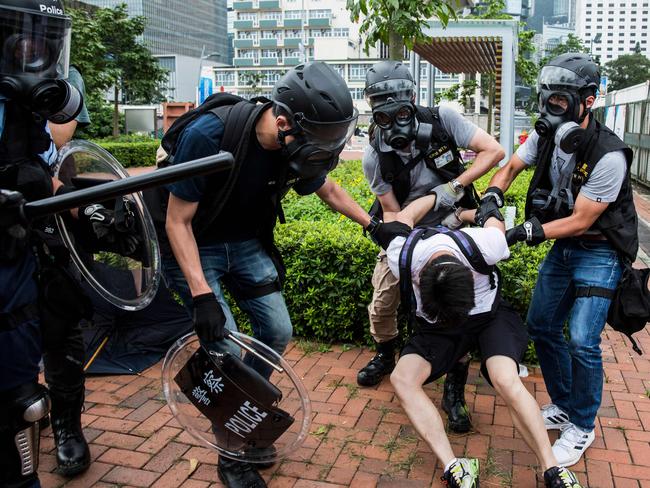
“We believe freedom of expression is a fundamental human right and support the right of people to express themselves without fear for their safety or other repercussions,” a Facebook spokeswoman said in a Monday statement.
Earlier in the day, a spokeswoman for Facebook-owned WhatsApp said reviews would be paused “pending further assessment of the impact of the National Security Law, including formal human-rights due diligence and consultations with human-rights experts”.
In separate statements, Twitter and Alphabet-owned Google said they had paused all data and information requests from Hong Kong authorities immediately when the law went into effect last week. Snap Inc, owner of Snapchat, declined to comment.
The Wall Street Journal
11.00am: Stuart Robert to speak at National Press Club today
Government Services Minister Stuart Robert is expected to confirm seven updates to the government’s COVIDSafe app addressing more than 30 bugs during a speech at the National Press Club in Canberra today. More than six million Australians have downloaded the app, so its performance remains important if it is to genuinely help with contact tracing. The large coronavirus outbreak in Melbourne will be an acid test for the app.
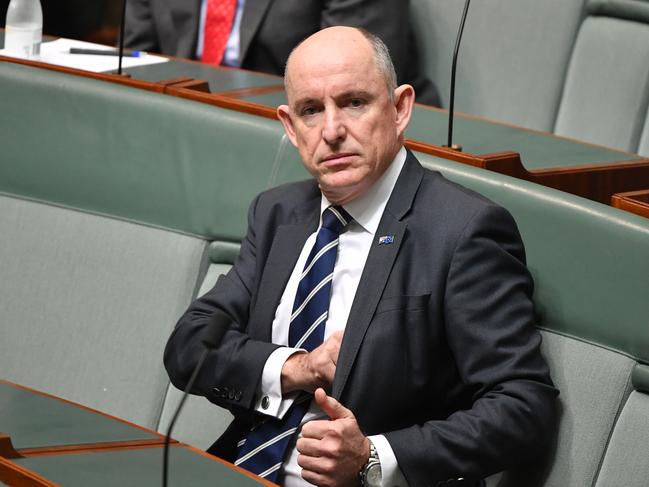
Mr Robert is also due to announce major changes to the government’s delivery of digital services. The Morrison government may establish a “sovereign cloud” to hold the data of Australians in a bid to protect personal information from overseas governments and companies.
Mr Robert will also flag a new platform to be run by the Digital Transformation Agency that could potentially be used for visa processing.
In excerpts previewing his address, Mr Robert says Australians made it clear they expected government to “respect their privacy and have their data stored, secured and protected here, in Australia”.
10.30am: Commonwealth Bank outage is over but some customers are still unhappy
The Commonwealth Bank says it has resolved yesterday’s outage which not only prevented customers using debit and credit cards, but also caused housing and personal loan details to disappear from accounts.
“Services are now operating as normal, with accounts and statements viewable again in the CommBank app and NetBank,” the bank says in a post. “Payments are also available. Customers looking to make their credit card payment are now able to do so via the CommBank app and NetBank.”
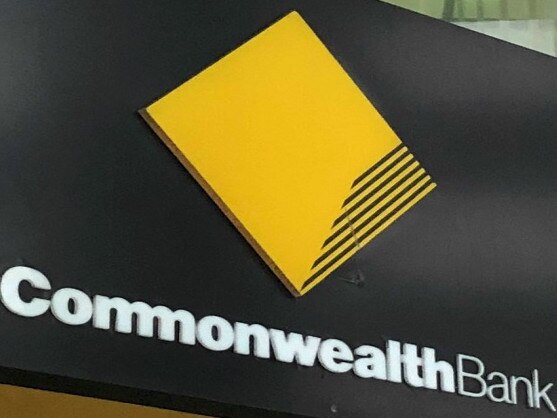
“If any customer continues to experience any issues, please contact us so we can assist. We apologise to everyone who was impacted by this inconvenience.”
However some customers have reported that they are still experiencing problems on social media. “A payWave transaction from yesterday afternoon is not showing on my account and no money has come out,” says one customer. “Made a transaction yesterday that was approved and that hasn’t left my account. Deleted the app and reinstalled and still hasn’t updated,” says another.
Online, the bank today has suggested that customers experiencing issues with the CommBank app delete it and reinstall it and that missing transactions will eventually appear.
10.10am: Tesla shares surge
Shares of Tesla surged 13 per cent to a record high on Monday, extending their rally to over 40 per cent in five sessions after analysts raised their price targets on the electric car maker following its strong quarterly deliveries.
The day’s jump increased Tesla’s stock market value by $US30 billion, eclipsing the entire value of Ford, currently at $US25 billion.
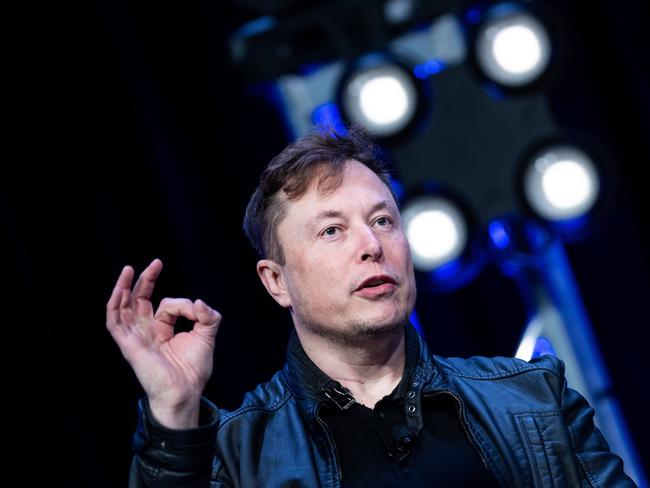
JMP Securities increased its price target to $1,500 from $1,050 after Tesla on Thursday reported higher-than-expected second-quarter vehicle deliveries, defying plummeting sales in the wider auto industry as the coronavirus pandemic slammed the global economy.
“We believe that the question to be considered is not whether the stock is expensive on current valuation measures, but what the company’s growth and competitive position signal about the stock’s potential for the next several years,” JMP Securities analyst Joseph Osha wrote in a client note. Tesla’s annual sales could hit $US100 billion by 2025, he predicted.
JPMorgan, which rates Tesla “underweight,” raised its price target to $US295 from $US275, while Deutsche Bank upped its target to $US1,000 from $US900. The median analyst price target for Tesla is $US675, compared with its current price of $US1,372, according to Refinitiv.
Reuters


